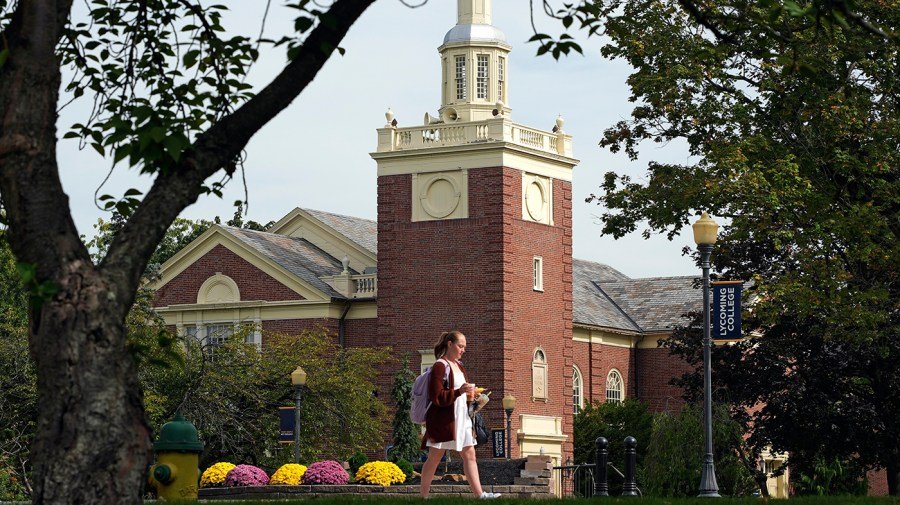
A new study shows college women are struggling more than their male counterparts to recover from the COVID-19 pandemic.
The research, one of the first comparing how COVID-19 affected female and male college students, adds to trends seen in high school and even younger students regarding the disproportionate impact the pandemic had on girls.
Mental health and learning loss are some of the big reasons researchers suspect for the difference, and they urge schools to take action to help struggling students.
The study, out of the University of North Carolina Greensboro, found first-year female college students have greater struggles than male students in both passing classes and accumulating credits.
Whereas male students have not seen a big difference academically before and after the pandemic, women at community colleges are earning almost one fewer credit per year and women at four-year universities are earning 0.6 fewer credits per year.
“We were able to see students’ academic records from high school through college, whether they went to a community college or a four-year institution, and we were looking at academic trajectories before, during and after the COVID pandemic,” said Dora Gicheva, co-author of the study and associate professor in the Department of Economics at the University of North Carolina Greensboro.
“What we saw is that relative to where cohorts were before the pandemic in the 2021 and 2022, high school graduate females were passing fewer classes and accumulating relatively fewer credits relative to how female students were doing before,” Gicheva added.
She notes that female students still tend to outperform male ones in higher education, but that the recovery to their previous levels before the pandemic is slower. The study looked at baseline levels from the 2018-2019 academic year and goes to the 2021-2022 school year.
The data added to similar findings for younger age groups.
A study looking at the 2023-2024 school year showed teenage girls are struggling more than boys with mental health, and in places with the greatest mental health struggles, fewer resources are available.
“The role of technology in social media, I think, is something that a lot of people are concerned about for the impact on teen girls,” said Morgan Polikoff, one of the authors of the study and associate professor of education at the University of Southern California. “There are other hypotheses out there. Different people experience the pandemic and social isolation of the pandemic differently and it may be that girls were more negatively affected in various ways.”
The differences went to even lower grades as middle school girls saw a bigger decline in STEM achievement between 2021 and 2024 compared to boys the same age, according to NWEA, a K-12 assessment and research organization.
And fewer 8th grade girls are enrolling in algebra, a class that is seen as a predictor of future college enrollment and success.
“In our paper, we predicted that the observed declines in girls’ eighth-grade test scores as well as girls’ declining rates of enrollment in eighth-grade algebra may lead to longer-term impacts on girls’ college enrollment and success (particularly in STEM fields). Unfortunately, this new study seems to confirm that these concerns were warranted,” Megan Kuhfeld, director of growth modeling & data analytics at NWEA.
Educators have to contend with learning loss across the board, between both male and female students, with as almost all grades are showing lower reading and math scores after the pandemic.
And experts have been ringing the bell on the teen mental health crisis for years before the pandemic.
Given the data, some experts say higher education needs to realize incoming students will not be in the same position as those before them and not make assumptions about where they are academically.
“Many of us in education have seen that we can no longer make those assumptions because of how different a lot of these incoming students over the last couple of years, and these incoming freshmen students over the last couple of years, how different their secondary school experience has been,” said Brent M. Maximin, lecturer for the Department of Psychology at the City College of New York.
One of the suggestions is to allow college students to convert their letter grades into pass or fail, a policy that was adopted by many schools during the pandemic so students’ GPAs wouldn’t drop.
“I know as a faculty member now, I know we are still doing a lot. We have a lot we offer of academic help, student support services, but I think it’s important to recognize that different groups of students have been impacted disproportionately by the pandemic, and while some students have recovered and are where they were before, it’s important to identify students that need additional academic supports and offer them to these students,” said Gicheva.

